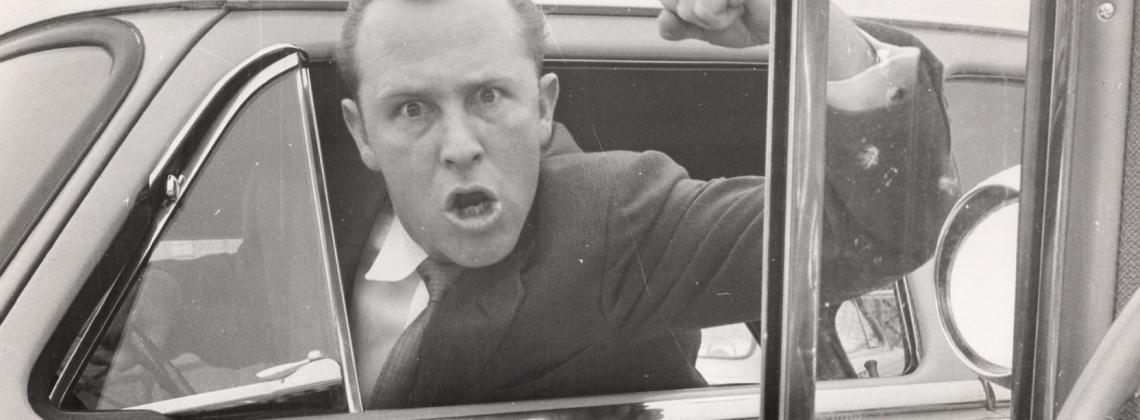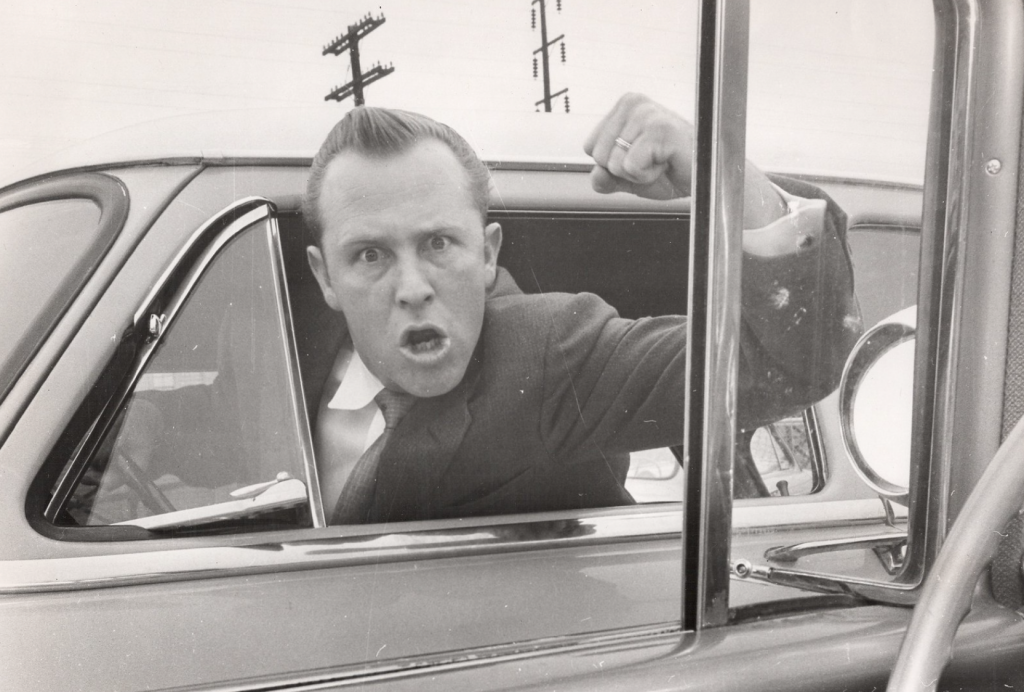

What would happen if we hit the road as citizens, rather than enemies?
Most of us love our country and want it to be a better place. But we often feel powerless to effect meaningful change. Most of us don’t have access to the levers of power we think might be required for structural or institutional shifts. Few of us will ever have much personal say in who becomes a political party’s nominee for president, or who gets shortlisted for the Supreme Court, or what goes into a trade agreement. But we all make choices every day that affect our country and determine what kind of place it is in which to live and love. If we want to make the country a better place, we can begin by choosing to be better drivers.
There are immediate and obvious ways that being better drivers would make this a better country. The average American pays over $1600 a year on insurance—just over two percent of their income. That is a lot of money. And if we all did a better job on the roads, we could save some of it to pay for other things. Not only could better driving mean saving money, we could find ourselves saving lives. The past couple of years have seen a spike in bad driving. In 2021, over 20,000 people died in auto fatalities in the first half of the year alone. If we could all agree to leave the house with enough time to go the speed limit and wear our seatbelts, there could be thousands of families in better positions. These obvious reasons are enough to make us consider our choices on the road.
There are also less obvious ways that being better drivers would make this a better country. On average, Americans spend almost thirty minutes on the road each way on their daily commute. That means that about five days a week we spend an hour a day, however distantly, alongside strangers. It may be the most exposure we have all week to people we don’t personally know. And that time shapes our perception of our neighbors. In Imagined Communities, Benedict Anderson argues that an important part of nationalism is the sense of “fictive kinship” we have with other members of the nation. We imagine ourselves in relationship with the other citizens, rather than as just subject to the state. Well, what kind of fellow citizens do we show ourselves to be? What kind of kin are we?
Recently a disturbing but unfortunately everyday dashcam video circulated on the internet. An aggressive driver in a Honda Accord began tailgating a truck in the left lane, which responded with some brake checks. The Accord driver escalated to illegal and dramatic passing maneuvers, which resulted in a horrific crash. The truck and many other cars kept moving. The driver of the watching car (the one with the dashcam) cheered as the Accord flipped. None of this was necessary. And it certainly doesn’t make it any easier to live together. It would be hard to see something like this and not feel that man acts as a wolf toward other men: homo homini lupus.
One of the problems in politics today is the sense that people with different perspectives must be “enemies.” There is a “winner take all” mentality in Washington that is exhausting to watch and experience. Each party seems determined to shut out the other and deny the opposition a seat at the table. We argue about gerrymandering, the filibuster, and the Supreme Court in part because we are worried that if the “other side” wins we will be voiceless. Once a side has an advantage it avoids any of the opposition’s ideas or nominees. We all bemoan this in D.C. But then we drive in the same spirit on our own streets.
We are out here making enemies every day. It is not just radio hosts and lifelong politicians who send out messages of hostility and aggression and ceaseless competition. We do it, too. We refuse to slow down in school zones. We refuse to let people merge. We race the GPS. We neglect our turn signals. We would rather execute a dangerous maneuver than go around the block when we miss our turn. We create a hostile environment as we seek constant personal advantage. Only our own time and agenda matter. Everyone around us is a “bad driver” at best. The highway is Hobbes’ war of all against all.
All of those hours on the road shape our perceptions of the people alongside us. How often do people arrive at work or home and find themselves angry or upset by their time on the road? How often do drivers feel endangered by others? Heart rates go up and optimism goes down when we’re on the road. Do we think those experiences will have no effect on how we view our neighbors, or how we vote? We can bemoan other people for voting for “jerks,” but we drive as though only jerks get ahead. Those people in the other cars—they are not all to blame for our late arrival time. They are our countrymen and countrywomen.
In his inaugural address, Abraham Lincoln said “we are not enemies, but friends.” He was speaking to a divided nation, on the edge of a precipice. Whether or not we are on the edge of a precipice, the principle applies to us today: We are not enemies. We ought to be friends. The good news is, while we cannot choose all of the details of a commute, we can choose to be courteous drivers. We can make people less afraid of strangers and less angry. We can show respect for other people’s time and lives. We can show that it is possible to find a common interest with each other, and to share space well.
Elizabeth Stice is Associate Professor of History at Palm Beach Atlantic University. Her essays have appeared at Front Porch Republic, History News Network, and Mere Orthodoxy.